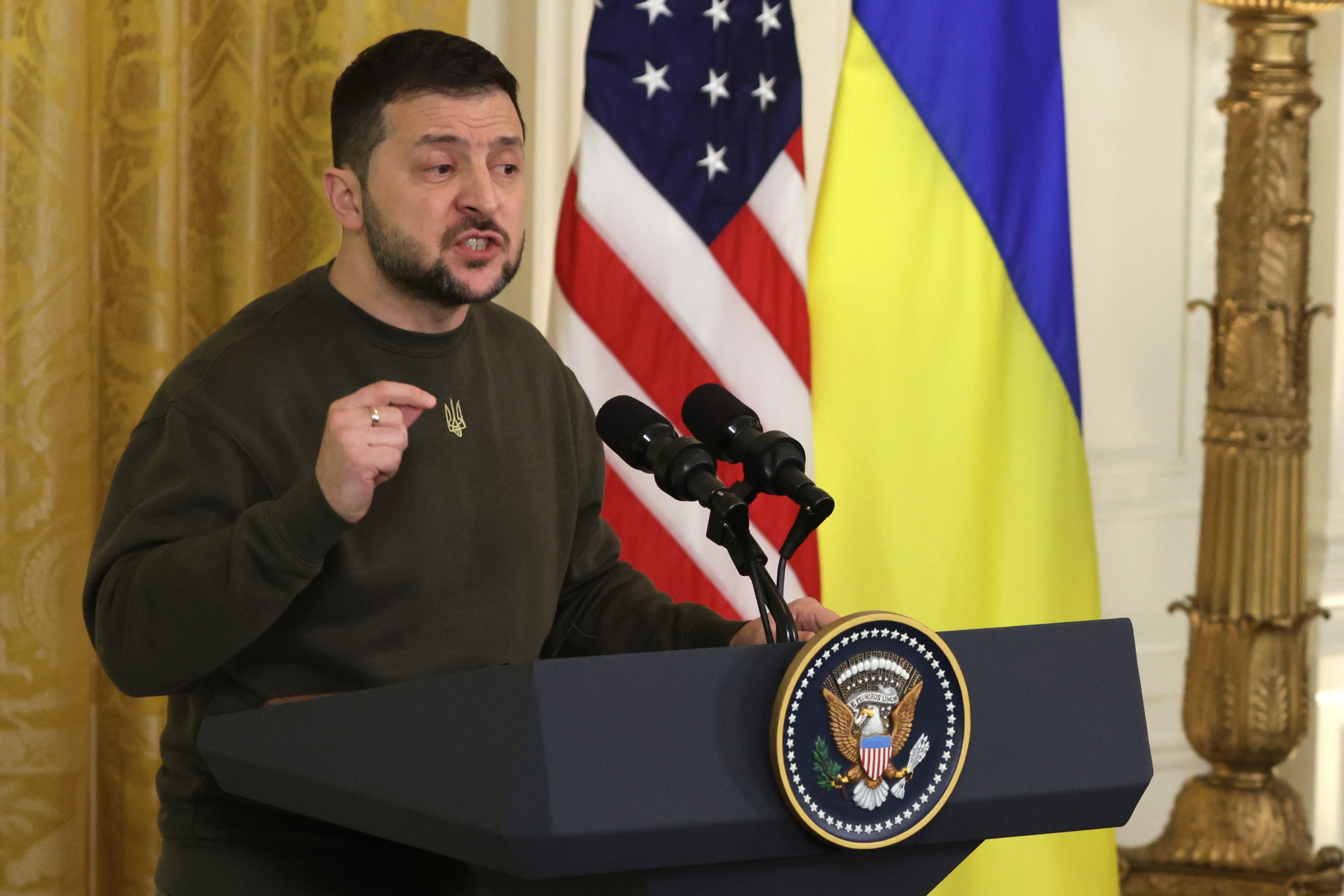In 2023, Ukraine may suffer the same fate as Gaza and Syria
If we tire of this story, of the plight of Ukraine, we risk normalising an invasion of this global scale, writes Bel Trew


Few would have thought waking up on 1 January 2022 that the single largest event in Europe’s modern history since the Second World War was just around the corner. That it would unfurl with such devastating rage through all of our lives.
But on 24 February, President Putin decided to subject Ukraine and the planet to this – forging a new world order for all of us for generations to come. It reverberated well past the borders of the two protagonists in this story, igniting everything from bread shortages and near famine to a cost of living crisis.
And so it has been a bewildering year – with Ukraine and the war ravaging her as the centre of gravity. But for how much longer? So devastating has the conflict been, sparking Europe’s worst refugee and humanitarian crisis, that it has unfortunately eclipsed other world catastrophes and other wars. The global spotlight has been on the extraordinary scenes captured in now iconic images and words.
But as a bitter artillery war sets in, as the lines become entrenched, as bloody battles drag on with perhaps increasingly little gains, my fear is that after that anniversary of Russia’s invasion next month, fatigue will ultimately set in. This is what Putin is banking on. And it will be the job of journalists and aid workers alike to keep the story alive and relevant.
To a certain extent, fatigue has already set in. As with so many conflicts I’ve covered, capturing world attention feels like an hourglass. Syria, a conflict that has dragged on for a gruelling 12 years, is so little talked about on global news platforms that I am regularly asked if the war is over. Few would have a clue what the status is of the government of Libya, a country wracked by a similarly long war.
Repetition is also the killer of attention. I remember in 2021 standing in the crater of an airstrike on a street in Gaza that I’d seen bombed in 2012 and 2014, as well as 2021. The bewildering familiarity of the conflict saw much of the world meet the crisis with a shrug. Ukraine in 2023 may suffer a similar fate, particularly as the battles within the war became increasingly indiscernible: from the liberation of Kyiv region, to Kharkiv to Kherson.
This is made worse by domestic woes in Europe and the West. The war in Ukraine coming on the heels of the pandemic has contributed to record-high inflation in Europe – reaching nearly 11 per cent across the board (but as high as 15.6 per cent in Poland). Runaway prices have seen people become reluctant to spend, which in turn has seen donations to Ukraine dwindle. This is something that Kyiv is no doubt very concerned about.
It is no coincidence that President Zelensky took the extraordinary step to leave Ukraine for the first time since the war started to visit the US and rally support. There the Ukrainian leader made an impassioned plea to President Biden and Congress for more and continued American support – in particular for weapons. There is growing scepticism from House Republications about the utility of continuing to give aid. Speaking to a joint session at Congress, he framed support for Ukraine not as charity but “an investment in global security and democracy”.
“This battle cannot be frozen or postponed,” he said. “It cannot be ignored, hoping that the ocean or something else will provide protection... so much depends on the world. So much in the world depends on you,” he said to America’s political elite.
This is the unfortunate reality in the world of humans. Our attention spans and pockets are not infinite. They just can’t be. The danger is it plays straight into Moscow’s hands – for Putin, global apathy is his greatest weapon because if support for Ukraine flounders, he has a better chance of winning. If we tire of this story, of the plight of Ukraine, we risk normalising an invasion on this global scale.
We risk setting a dangerous world precedent. So part of our job as reporters is to fight that – by continuing to tell and frame the stories that matter and engage audiences. And keep a spotlight on atrocities being committed.
Join our commenting forum
Join thought-provoking conversations, follow other Independent readers and see their replies
Comments
Bookmark popover
Removed from bookmarks